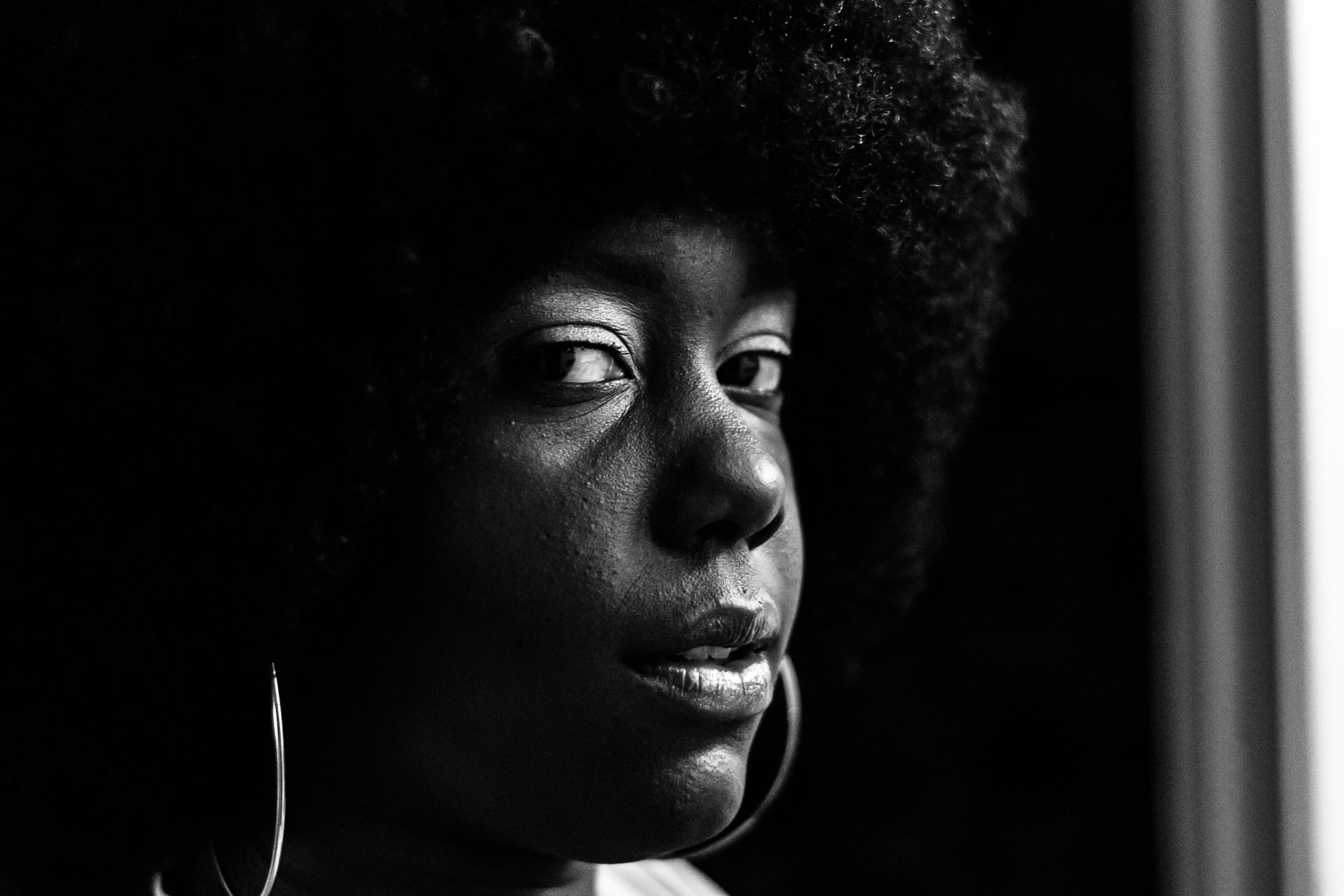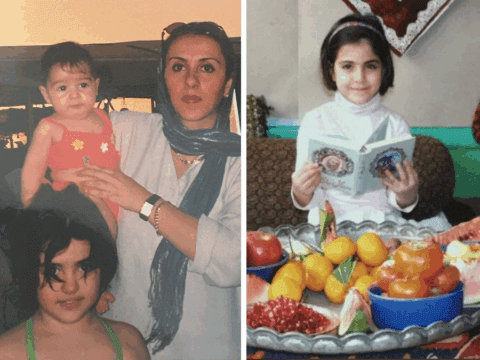“Where are you from, really?”
It’s a pretty innocent question until you are asked it enough times because people can’t believe you were born and raised in Canada.
You may unsubscribe from any of our newsletters at any time.
I’ve experienced this microaggression since I was a kid.
You may think I’m being overly sensitive in my annoyance with this question. To many, the person asking is simply curious. In reality, when the question is a follow-up and I’ve already told you where I’m from, I’m hearing that I can’t be Canadian. If you want to know my ethnicity, ask me that.
This is how this particular microaggression—the othering of Black people—plays out: Over the last few months, COVID-19 articles and commentary about anti-Black racism were taking up my social feeds. Ontario’s race-based data showed that the virus was disproportionately affecting Black, Indigenous, and people of colour thanks to poverty and systemic racism.
During that time, the Quebec government also said that anti-Black racism didn’t exist in the province.
I posted a meme—maybe in bad taste—about Quebec and the virus. It read, “what province would you sacrifice to get rid of COVID-19 and why did you choose Quebec.” A friend, a former colleague and white woman, sent me a direct message.
More on Broadview: Is George Floyd’s death the start of my daughter’s ‘Black list’?
How could I make fun of her home province?
But the joke is, I was born and raised in Quebec, with family and friends still in the province who are affected by COVID-19. La Belle Province is my home province. And she knew this.
So how did my friend, a lovely person who has never said a negative word to me, manage to other me and hurl a microaggression, assuming that Quebec was not my home to critique or poke fun at?
These microaggressions are like death by a thousand cuts. They are constant reminders that people don’t believe I belong. They build a wall of anti-Blackness that blocks me out and tells me—and people who look like me—that I’m an outsider.
I have plenty of stories about how microaggressions have affected me: no painkiller prescription after my youngest daughter was born by C-section, my high-school geography teacher saying that I wouldn’t amount to anything—although I was an honour roll student—numerous workplace issues, and more.
My experience is not unique; the data bears it out: Research has shown that doctors don’t believe Black people feel as much pain. Anti-Blackness is a problem in schools to the point that Ontario’s Peel District School Board removed its director due to the board’s systemic racism. Canadian census data shows that Black people have higher rates of unemployment.
Anti-Blackness is big and pervasive, like the Trans-Atlantic Slave Trade, but it’s also small, like the everyday microaggressions that Black people face in a world built on white supremacy.
What are microaggressions? They are the experiences of racism that I endure each day and shrug off because I need to be able to navigate this world and the people in it. It’s why when Black people watch the news and see a crime, we cringe and pray it’s not one of us because we are often made to feel like we’re inherently pathological, although the Ontario Human Rights Commission found Black Torontonians are disproportionately policed, arrested and charged.
It’s exhausting—but you’ve heard that already because this is not new. We all know that microaggressions and anti-Blackness were problems a year ago—they just weren’t on the news every day.
The world is talking about anti-Black racism, white supremacy, police brutality, oppression and microaggressions because we all were horrified and sickened by George Floyd’s killing at the hands of a Minneapolis police officer.
Each microaggression builds and creates a more racist society. Individual microaggressions could be ignored, but together, and daily? They chip away at our self-confidence and self-esteem.
Who wants to feel like they don’t belong? Who wants to feel like they must be on their guard at all times? Who wants to live like that?
No one.
Enough is enough—it’s angering, frustrating and soul-sucking to always be seen from a deficit because we, Black people, are so much more than that.
And we deserve more than this.
I hope you found this Broadview article engaging. The magazine and its forerunners have been publishing continuously since 1829. We face a crisis today like no other in our 191-year history and we need your help. Would you consider a one-time gift to see us through this emergency?
We’re working hard to keep producing the print and digital versions of Broadview. We’ve adjusted our editorial plans to focus on coverage of the social, ethical and spiritual elements of the pandemic. But we can only deliver Broadview’s award-winning journalism if we can pay our bills. A single tax-receiptable gift right now is literally a lifeline.
Things will get better — we’ve overcome adversity before. But until then, we really need your help. No matter how large or small, I’m extremely grateful for your support.
Jocelyn Bell
Editor/Publisher
















Wow. Powerful, well written article that illuminates the toxic treatment of people of colour in and by a white society. I am beginning to understand more and more the label of white privilege and the protection it has afforded even me—the nondescript, pasty faced (read: white) daughter of an oilfield worker hailing from various trailer parks in small town Alberta. Thank you. You are so right. You deserve much much better.
I read Broadview online. It comes into my home in Udaipur, Rajasthan, India every Saturday morning. Today, August 22nd, I have just finished reading “Microaggressions are constant reminders that I don’t belong” by Shellene Drakes-Tull, a Quebec born Canadian. Shellene writes that as a black woman, she has had to suffer little but constant “put-downs” her whole life, both comments and actions. I identified with her, even though I am a white-skinned, anglo-saxon, Canadian born woman. I have been living in India for now 50 years. I have made my life here. I married Om Shrivastava in Canada in 1970, and after 3 months, we came to Rajasthan, his home state, to work as activist adult educators in the field of literacy and social development with marginalized communities. And over all these years, I still have to listen to the question of “where do you belong?”. “I am from Udaipur.” “No you’re not!” “Yes I am!” “But you look different, like you don’t belong here.” It hurts. For 50 years, I have walked the hills and by-lanes of rural Rajasthan, given my sweat and blood to this country which I love, been with rural women in the delivery room, the police station, the “sit-in” for justice. If you want to ask “Where were you born?” then ask that. Yes, Shellene, “enough is enough”.
Ginny Shrivastava
Canada is often called “a nation of immigrants”, & especially in western & northern Canada, people often ask new acquaintances where they’re from to start a friendly conversation, regardless of what colour their skin is. Most people are happy to talk about their family origins… & it’s a common joke in Vancouver to suggest everybody comes from somewhere else, so asking where home is there can be a way to reveal a common connection (usually it turns out to be eastern Canada). Customers often ask me where I’m from, & I’m not black… & also I work in Nanaimo, BC with 2 guys who are immigrants from India & Antigua respectively, & both of them have asked me the question “where are you really from” because they know I have worked in other provinces. In return, I asked them the same question to be polite. Perceiving a friendly question like that as “othering” & “microaggression” (whatever those silly newly-invented words are supposed to mean) in order to suggest it’s racism is ridiculous & childish. There are lots of important issues to deal with in Canada & the world besides taking umbrage at somebody asking you where you’re from, & you have to be looking for “racism” under every rock to suggest that’s why people ask it.